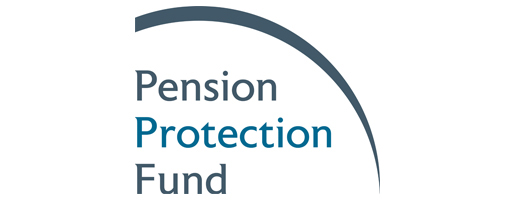The Pensions Regulator (TPR) hit 10 out its 14 key performance indicators (KPIs) in 2021-22, nearly meeting a further three targets, amid “significant economic and social challenges”.
The regulator’s 2021-22 Annual Report and Accounts revealed that TPR has increased its regulatory reach, with the number of schemes covered by TPR's supervision team reaching 34 million in the past year, exceeding the regulator’s 30.7 million target.
TPR recorded only one red KPI result, which was in relation to the planned completion of the second consultaiton on a revised defined benefit (DB) code, confirming that the draft code will not be published until "late summer 2022", in line with recent confirmation that the code will be operational from September 2023.
However, the regulator also recorded three amber results, in relation to the level of activity undertaken to contribute to the prevention and disruption of pension scams, the delivery of new systems to support regulatory functions, and levels of employee engagement.
Despite this, many of the regulator's key outcome indicators remained encouraging, showing that around 97 per cent of jobholders are enrolled in a qualifying scheme, consistently above the 94 per cent target, with improvements also seen in DB funding ratios.
Furthermore, despite being placed on pause during the pandemic, work on regulatory initiatives has begun again, with a regulatory initiative on weakening employer covenant, leading to positive results, as almost three quarters (73 per cent) of targeted schemes had "constructive" discussions with employers.
In addition to this, the report confirmed that around 4,77 schemes and organisations have now backed TPR’s pledge to combat pension scams and meet anti-scam best practice, also highlighting TPR’s recent successful prosecutions in relation to pension fraud.
TPR ended 2021/22 with an actual expenditure of £96.8m, around £7.7m lower than the budget, due to lower planned projects spend and savings associated with the auto-enrolment transformation.
However, the report showed that further work is needed to support TPR's net-zero targets, revealing that whilst there was a 6 per cent increase in headcount in the period, there was a 2 per cent increase in the total carbon dioxide equivalent (CO2e) emissions recorded, relative to 2020-2021.
The increase in carbon emissions and water usage was largely attributed to the reopening of Napier House and occupation levels rising, although the regulator suggested that contributing to net zero will be a "key objective" when planning for a proposed move from the Brighton property in 2023.
In addition to this, TPR confirmed plans to dedicate more time and resources to developing more detailed reporting methods, and to developing a plan outlining how it will meet its commitment to net zero by 2030.
TPR chief executive, Charles Counsell, highlighted the report as demonstration that, despite the "significant challenges" of the pandemic, TPR has shown "resilience and determination to maintain our focus on the saver".
He continued: “Against a backdrop of significant economic and social challenges, we’ve kept our focus on the saver by working closely with government and other regulators, and by maximising the effective use of our resources.
"Joined-up working across government and our partners is vital to ensure we meet our strategic goals and we are determined to achieve this.
"We have reacted swiftly to events whilst also maintaining our strategic activities to ensure we achieve strong outcomes for our pension savers.
“Our approach to automatic enrolment is a good example of our work. Since removing the easements we introduced for employers during the pandemic, we have returned to business-as-usual sanctions for those failing to meet their legal duties.
“In keeping the saver at the heart of all we do, we focused on outcomes and set ourselves 14 ambitious KPIs for the year. We met 10 of them, narrowly missed three and were not able to achieve one in relation to our revised DB code due to factors outside our control. We set ourselves challenging targets as we drive ahead with our strategic priorities.
"We have also continued to be a listening regulator having established three new stakeholder panels. The coming year will continue to be tough, but I believe we are well placed to meet the challenges and deliver the saver outcomes we set out in our Corporate Plan."
Latest News
-
OBR analysis reveals potential impact of salary sacrifice changes
-
Strong funding levels continue as endgame landscape reshaped by innovation
-
Harwich Haven Authority Pension Fund finalises £45m buy-in with Royal London
-
GAD publishes LGPS gender pension gap reporting guidance
-
DB scheme funding levels continue to improve heading into 2026
-
News in brief - 6 February 2026
Private markets – a growing presence within UK DC
Laura Blows discusses the role of private market investment within DC schemes with Aviva Director of Investments, Maiyuresh Rajah
The DB pension landscape
Pensions Age speaks to BlackRock managing director and head of its DB relationship management team, Andrew Reid, about the DB pensions landscape
Podcast: From pension pot to flexible income for life

Podcast: Who matters most in pensions?

In the latest Pensions Age podcast, Francesca Fabrizi speaks to Capita Pension Solutions global practice leader & chief revenue officer, Stuart Heatley, about who matters most in pensions and how to best meet their needs
© 2019 Perspective Publishing Privacy & Cookies










Recent Stories